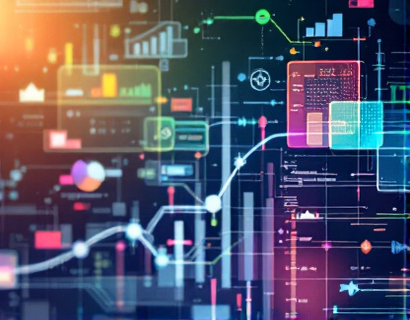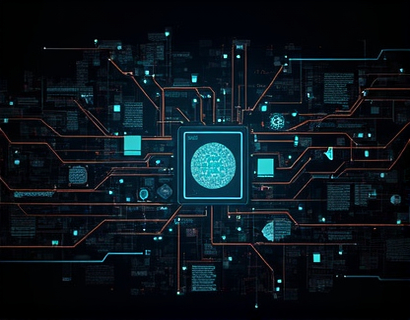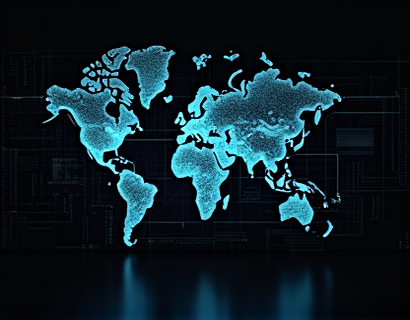AI-Driven Mental Health Insights: Transforming Access to Specialist Chatbot Services for Diverse Audiences
The integration of artificial intelligence in mental health services has opened new avenues for providing specialized insights and support to a wide range of users, including professionals, students, and families. This article delves into the capabilities and benefits of an AI-powered chatbot designed to deliver accurate and safe mental health information, catering to the unique needs of various user groups such as children, students, educators, and healthcare professionals.
Understanding the Need for Specialized Mental Health Chatbots
Mental health issues affect millions of people worldwide, and the demand for accessible, reliable, and personalized mental health resources is more critical than ever. Traditional methods of seeking mental health support can be daunting, time-consuming, and sometimes inaccessible, especially for those in remote areas or with limited resources. An AI-driven chatbot addresses these challenges by offering a convenient, 24/7, and confidential platform for users to receive specialized mental health insights and guidance.
Tailored Insights for Diverse User Groups
The AI chatbot is designed to provide tailored insights and information to different user groups, ensuring that the content is relevant, accurate, and safe. For professionals, the chatbot offers the latest industry trends, research updates, and best practices in mental health care. Students and young adults receive age-appropriate information on mental health awareness, coping strategies, and resources for support. Educators and parents find guidance on how to support mental health in educational settings and at home.
Content Verification and Safety
A critical feature of this AI chatbot is its robust content verification system, which ensures that all information provided is accurate, up-to-date, and sourced from credible mental health professionals and organizations. This verification process is essential for maintaining the trust and safety of the users, particularly when the chatbot interacts with children and students. The platform adheres to strict guidelines to filter out any potentially harmful or inappropriate content, making it a secure environment for all users.
Specialized Information for Professionals
Healthcare professionals, including psychologists, psychiatrists, and counselors, can benefit significantly from the AI chatbot's specialized insights. The chatbot provides the latest research findings, clinical guidelines, and treatment protocols, helping professionals stay updated with the evolving mental health landscape. It also offers tools for case management, patient tracking, and therapy planning, enhancing the efficiency and effectiveness of mental health services.
Industry Trends and Best Practices
The chatbot keeps professionals informed about industry trends, such as the increasing use of teletherapy, the integration of technology in mental health care, and the growing emphasis on preventive mental health measures. It also shares best practices in patient engagement, cultural competence, and ethical considerations in mental health practice. By accessing these insights through the chatbot, professionals can improve their practice and provide better care to their clients.
Support for Students and Young Adults
Students and young adults face unique mental health challenges, including academic stress, social pressures, and identity formation. The AI chatbot offers resources and information specifically designed to address these concerns. It provides tips on managing stress, improving focus and productivity, and maintaining mental well-being during exams and other high-pressure periods. The chatbot also directs users to local and online support groups and counseling services tailored to their age group.
Mental Health Awareness and Education
One of the key roles of the chatbot is to promote mental health awareness and education among students. It offers age-appropriate content that demystifies mental health issues, reduces stigma, and encourages open conversations. The chatbot can answer common questions, provide facts about different mental health conditions, and suggest healthy coping mechanisms. This educational approach empowers students to take proactive steps in maintaining their mental health and seeking help when needed.
Engaging and Secure Environment for Children and Families
For children and families, the chatbot creates a safe and engaging environment where they can access mental health information without feeling overwhelmed. The interface is designed to be user-friendly and visually appealing, with content tailored to different age groups. Parents and caregivers can find resources on how to support their children's mental health, recognize signs of distress, and know when to seek professional help. The chatbot also offers interactive tools and games that teach children about emotions, resilience, and positive thinking.
Child-Friendly Content Verification
The content provided to children and families undergoes rigorous verification to ensure it is not only accurate but also suitable for young audiences. The chatbot filters out any information that could be misinterpreted or cause anxiety. It also includes parental controls and monitoring features to ensure a safe browsing experience for children.
Empowering Educators and Parents
Educators and parents play a crucial role in supporting the mental health of children and students. The AI chatbot provides them with practical tools and strategies to create a supportive environment. It offers guidance on how to initiate conversations about mental health, recognize warning signs, and respond appropriately. The chatbot also shares resources for school-based mental health programs and policies, helping educators to foster a positive and inclusive school culture.
Collaboration and Community Support
The chatbot facilitates collaboration between educators, parents, and mental health professionals. It serves as a platform for sharing experiences, asking questions, and seeking advice. This community approach ensures that everyone involved in a child's life is aligned in their efforts to support mental health. The chatbot can also connect users to local support networks and community resources, expanding the network of support available to families.
Technological Innovations in Mental Health Chatbots
The development of AI chatbots for mental health has been driven by advancements in natural language processing, machine learning, and data analytics. These technologies enable the chatbot to understand and respond to user queries with high accuracy and empathy. The chatbot can analyze user inputs, recognize emotional cues, and provide personalized responses that address the user's specific concerns and needs.
Personalized User Experiences
One of the strengths of the AI chatbot is its ability to offer personalized experiences. By learning from user interactions, the chatbot can tailor its responses to individual preferences and history. For example, a student who frequently seeks advice on exam stress will receive more relevant tips and resources over time. This personalization enhances user engagement and satisfaction, making the chatbot a trusted companion in their mental health journey.
Integration with Existing Mental Health Services
The AI chatbot is designed to complement existing mental health services rather than replace them. It serves as a preliminary resource for users to gather information, find support, and make informed decisions about their mental health care. For users who need more intensive support, the chatbot can provide referrals to local mental health professionals, clinics, and hotlines. This integration ensures a seamless transition from initial inquiry to professional care.
Enhancing Accessibility
Accessibility is a core principle of the AI chatbot. It is available 24/7, breaking down the barriers of time and location that often limit access to mental health services. Users can interact with the chatbot from anywhere, at any time, using their preferred device. This accessibility is particularly beneficial for individuals in remote areas or those with mobility issues, ensuring that mental health support is within reach for everyone.
Future Prospects and Challenges
The future of AI-driven mental health chatbots holds great promise, with ongoing research and development aimed at improving their capabilities and expanding their reach. However, there are also challenges to address, such as ensuring user privacy, managing ethical considerations, and overcoming the digital divide. Continuous collaboration between technologists, mental health professionals, and policymakers is essential to overcome these challenges and harness the full potential of AI in mental health care.
Conclusion
The AI-powered chatbot represents a significant advancement in providing specialized mental health insights and support to a diverse audience. By offering accurate, safe, and engaging content, it empowers individuals to take control of their mental health and seek help when needed. Whether for professionals seeking the latest industry trends, students looking for mental health resources, or families seeking guidance on support options, the chatbot stands as a valuable tool in the ongoing effort to promote mental well-being.










































